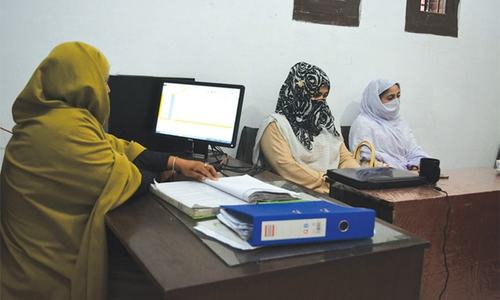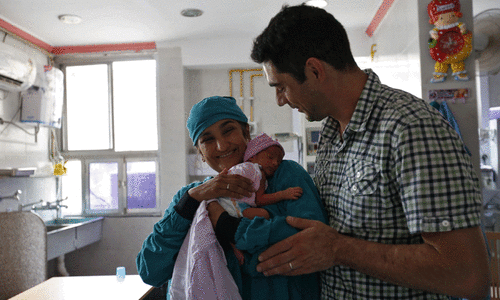The Senate on Monday passed the Maternity and Paternity Leave Bill, 2018, which makes it mandatory for employers to grant paid maternity and paternity leave to employees.
As per the bill, the leaves policy will be applicable in both public and private establishments in the federal capital territory.
According to the bill, women will get paid maternity leave of:
- 180 days (six months) on first birth
- 120 days (four months) on second birth
- 90 days (three months) on third birth
According to the bill, men will get paid paternity leave of:
- 30 days (one month), a total of three times during service
The bill, presented by Senator Quratulain Marri, was passed with a majority of votes, even as government senators opposed the move. It will now be sent to the National Assembly for debate.
"Maternity leave shall in the prescribed manner be granted on full pay outside the leave account to a female employee on her option to the extent of one hundred and eighty days on first birth, one hundred and twenty days on second birth and ninety days on third birth from the date of commencement thereof," reads the bill, a copy of which is available with Dawn.com.
However, it adds that the maternity leave will not be granted more than three times in the entire service of a female employee "except when such leave is granted within her leave account [...] or as an extraordinary leave without pay".
The provision for paternity leave “seeks to provide fathers the opportunity to be there at a crucial time without the added responsibility of the workplace,” the bill states, adding that, “the early close relationship between father and child has long-term implications.”
According to the bill, "A male employee expecting his wife to give birth to a child shall, at his option, be granted paternity leave on full pay not exceeding thirty days outside his leave account from the date of its commencement."
The draft law states that the paternity leave will not be granted more than three times in the entire service of a male employee "except when such leave is granted within his leave account [...] or as an extraordinary leave without pay".
Addressing the session on Monday, Senator Marri lamented that female employees weren’t given maternity leave in the public sector. Even in the Senate, women are told not to produce so many children, she added.
Not everyone was in favour of the bill, however, with government lawmakers questioning its utility, given there was already a provision for maternity leaves in the law.
Minister for Economic Affairs Hammad Azhar, while opposing the bill, said that there was already a law to give 90-day maternity leave to female employees, while male government employees could avail 48 leaves in a year.
Azhar suggested lowering the number of paternity leaves to 15 days, adding that nowhere in the world was there a provision for these many paternity leaves.
An earlier version of this article incorrectly stated that the bill makes it mandatory for employers to grant 6-month paid maternity leave and 3-month paid paternity leave. In fact, it proposes that women get a 6-month leave on the first birth while men be given a 30-day leave. The error is regretted.














































